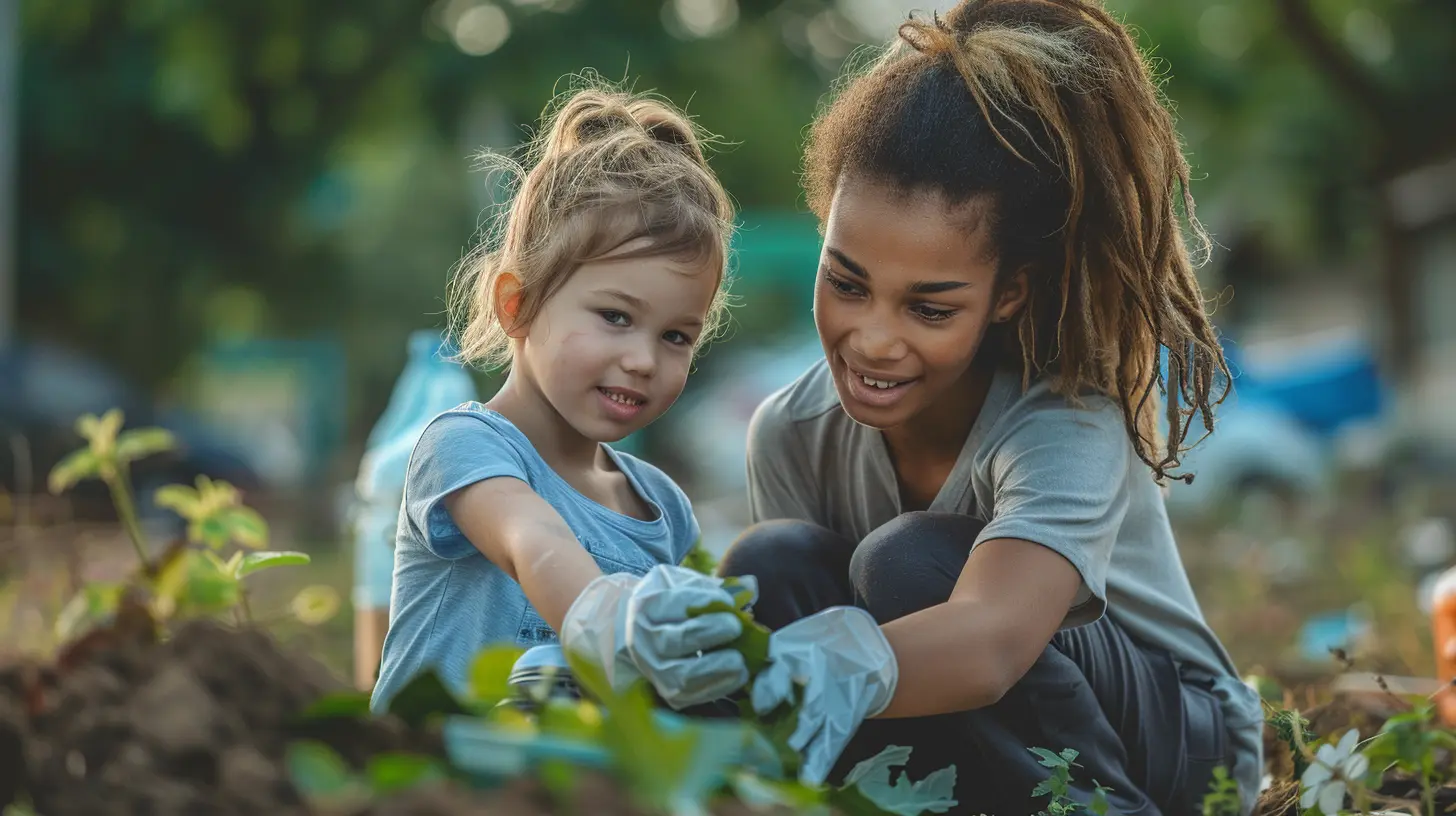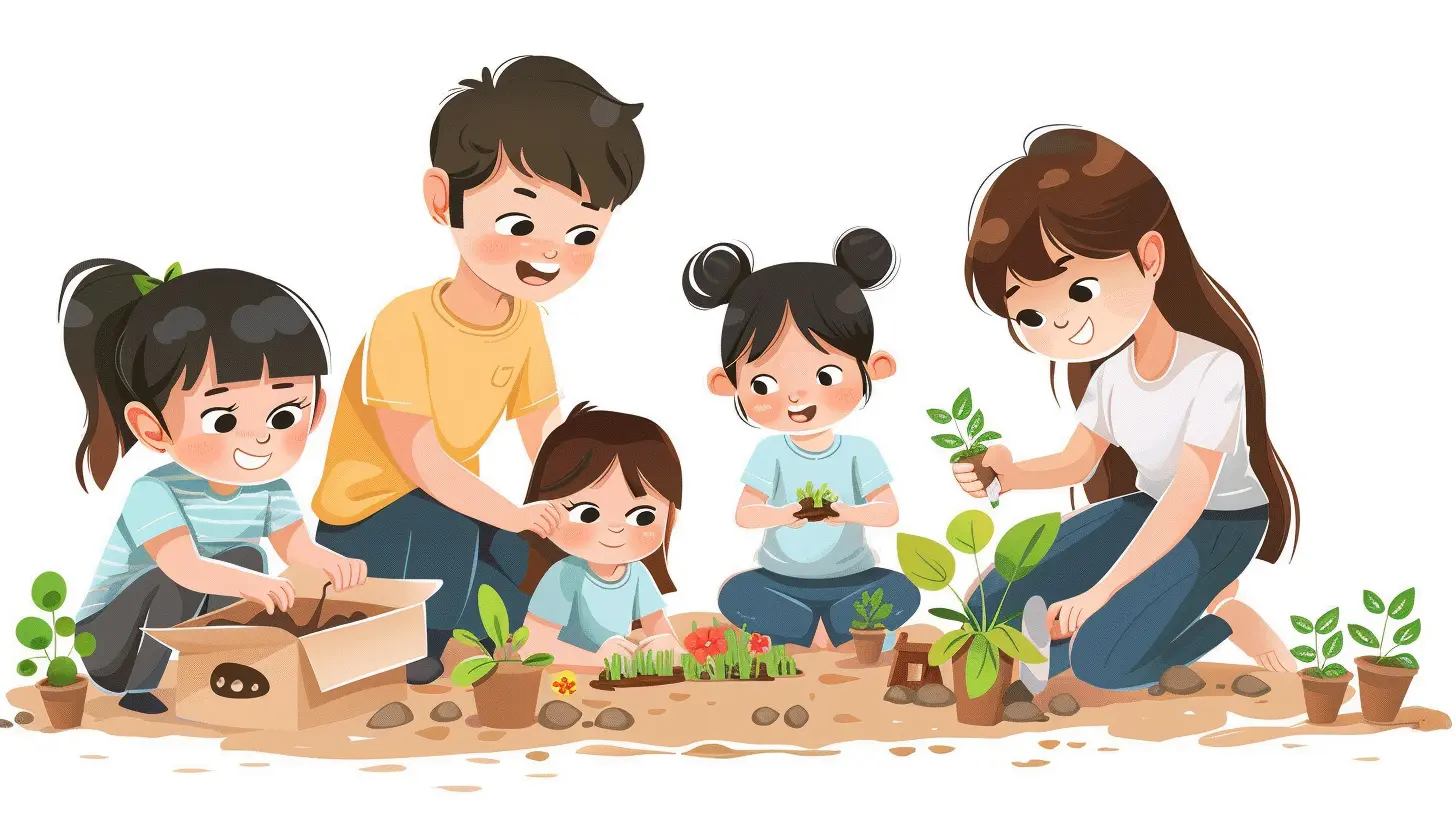How Volunteer Work Can Teach Kids Valuable Life Lessons
27 September 2025
Raising children isn't just about teaching them to tie their shoes, memorize the multiplication table, or say "please" and "thank you." It’s also about helping them grow into compassionate, responsible, and well-rounded adults. But here's the kicker: life lessons aren’t always learned in a classroom or on a sports field. Sometimes the best teaching moments happen when kids roll up their sleeves and give back to the community. Yep, volunteering has that kind of magic.
In this article, we’ll dive into why volunteer work can serve as a priceless teaching tool for kids. We’re talking about real-life skills, emotional growth, and even a deeper understanding of the world around them. So, pull up a chair (or cozy up on the couch), and let’s chat about how volunteering can shape your child’s character in incredible ways.
Why Volunteering Matters More Than Ever
Let’s face it—kids today are growing up in a world of instant gratification. Swipe this, click that, and voilà, you’re entertained or fed within minutes. While technology has its perks, it can sometimes create a bubble around kids, shielding them from understanding what others go through. Volunteer work? It pops that bubble faster than you can say "community service."Volunteering teaches kids to step outside of their own little world. It opens their eyes to different people, challenges, and situations. It helps them see that not everyone has the same privileges or opportunities—and that they have the power to make a difference.
But wait, there’s more. Beyond just helping others, the act of giving back gives kids a sense of purpose. It’s a big deal, especially for kids who might feel like their voices don’t carry much weight yet. Volunteering tells them, “Hey, you matter. What you do matters.”
Life Skills Kids Learn Through Volunteering
Okay, so volunteering sounds great on the surface, but what exactly are kids learning from it? A lot. Let’s break it down.1. Responsibility and Accountability
When kids take part in volunteer projects, they learn what it means to show up and follow through. Whether it's planting trees, organizing canned goods at a food bank, or walking dogs at a shelter, they quickly realize that people and projects are counting on them. It’s like when you tell them to take care of a goldfish—except now, it’s a bigger commitment, and they’re stepping up to the plate for someone else.Did they forget their gardening gloves or show up late? They’ll see the ripple effect of their actions (or lack thereof). And honestly, there’s no better way for kids to learn responsibility than seeing it in action.
2. Empathy and Compassion
If there’s one thing the world needs, it’s more empathy. And volunteering is like an empathy boot camp. When kids interact with people who are struggling—whether it's families at a homeless shelter or elderly residents in a care home—they start to understand the challenges others face.It’s not something you can teach with words. Kids feel it when they see the gratitude in someone’s eyes or hear their stories. It changes how they view the world—and themselves.
Think of it as a superpower. Empathy helps kids navigate relationships, handle conflicts, and be kinder humans overall. It’s the gift that keeps on giving.
3. Problem-Solving Skills
Volunteer work is rarely a walk in the park. Sometimes, things don’t go as planned. Maybe the supplies run out during a donation drive, or the team needs to figure out how to build a bench in a community garden. Problem-solving is part of the gig, and it challenges kids to think on their feet.These real-world puzzles help kids develop critical thinking skills. They stop relying on adults for all the answers and start brainstorming solutions on their own. Life rarely hands out cheat codes, and volunteering gives kids a head start on figuring things out.
4. Gratitude for What They Have
Ever tried to explain gratitude to your kids? It’s kind of like trying to describe a sunset—it feels abstract until they experience it for themselves. Volunteering puts kids face-to-face with people who may not have the things they take for granted, like a warm meal, a comfy bed, or even clean clothes.This experience doesn’t just teach kids to be grateful—it gives them perspective. The next time they’re upset because you didn’t buy them the latest video game, they might just stop and think about what really matters.
5. Teamwork and Collaboration
Most volunteer work involves working with others, which means kids get a crash course in teamwork. Whether they’re packing lunches with a group of strangers or painting a mural with their classmates, they learn how to communicate, share ideas, and compromise.It’s not always smooth sailing. Personalities clash, and disagreements happen. But that’s part of the learning process! Kids figure out how to navigate those challenges and work toward a common goal. And honestly, isn’t that what being part of a community is all about?
The Ripple Effect: How Volunteering Shapes Character
Here’s the thing: volunteering doesn’t just teach kids skills—they walk away as better versions of themselves. How? The experience has a way of shaping their character in ways you might not expect.1. Confidence Booster
Accomplishing something—whether it’s cleaning up a park or organizing a fundraiser—makes kids feel good. It’s proof that they can make a difference, even if they’re small humans in a big world. That little boost in confidence? It spills over into other areas of their lives, like school, sports, and friendships.2. A Lesson in Humility
While volunteering can build confidence, it also teaches kids humility. They see firsthand that they’re part of something bigger than themselves. It’s not about being the “star” of the soccer team or getting straight A's—it’s about community and collective effort. It’s a humbling realization, but one that’s incredibly grounding.3. Motivation to Keep Helping
Once kids get a taste of how rewarding volunteering can be, they often want to keep going. A single act of kindness can evolve into a lifelong passion for giving back. And let’s be real—wouldn’t the world be a better place with more people like that?
Volunteering Ideas for Kids of All Ages
If you’re wondering where to start, don’t worry—I’ve got you covered. Here are some age-appropriate volunteer opportunities to get your kids involved:For Younger Kids (6-10 years old)
- Collect canned goods or toys for charity.- Visit a local nursing home to sing songs or deliver drawings.
- Participate in a park cleanup day.
For Tweens (11-13 years old)
- Volunteer at an animal shelter by walking dogs or petting cats.- Help sort donations at a food bank or thrift store.
- Assist with younger kids at a community event.
For Teens (14+ years old)
- Organize a charity fundraiser or donation drive.- Volunteer as a mentor or tutor for younger kids.
- Help build homes with organizations like Habitat for Humanity.
Tips for Making It Meaningful
Volunteering doesn’t have to be a chore—it should be something kids look forward to. To make it meaningful, let your child choose an activity they’re passionate about. Love animals? Help out at a shelter. Enjoy being outdoors? Opt for a conservation project. The more personal the cause, the more invested they’ll be.Also, take time afterward to talk with your child about their experience. Ask open-ended questions like, “How did it feel to help someone?” or “What did you learn today?” These conversations help solidify the lessons and emotions tied to volunteering.
Final Thoughts
Let’s be real: parenting is hard, and teaching kids valuable life lessons can feel like an uphill battle some days. But volunteering is one of those magical tools that checks all the boxes. It teaches responsibility, empathy, teamwork, gratitude, and so much more—all while making the world a better place.So, the next time you’re looking for a way to bond as a family or help your kids grow, consider spending a Saturday volunteering together. Who knows? You might just learn a thing or two yourself.
all images in this post were generated using AI tools
Category:
Education TipsAuthor:

Liam Huffman
Discussion
rate this article
1 comments
Monique Perry
What a wonderful perspective! Volunteering not only enriches kids' lives but also instills empathy, teamwork, and responsibility. It’s heartwarming to see them grow while making a difference in the community. Can't wait to try some of these ideas!
October 10, 2025 at 2:58 PM

Liam Huffman
Thank you! I'm glad you found the article inspiring. Volunteering truly does create lasting impacts for both kids and communities. Enjoy trying out those ideas!


